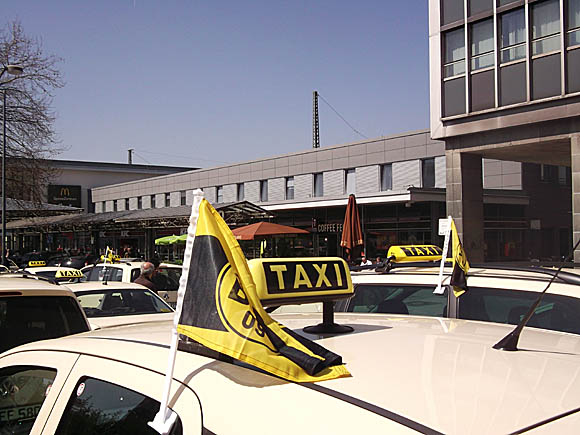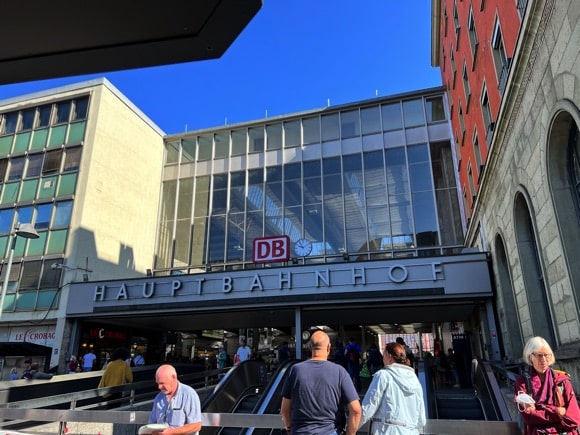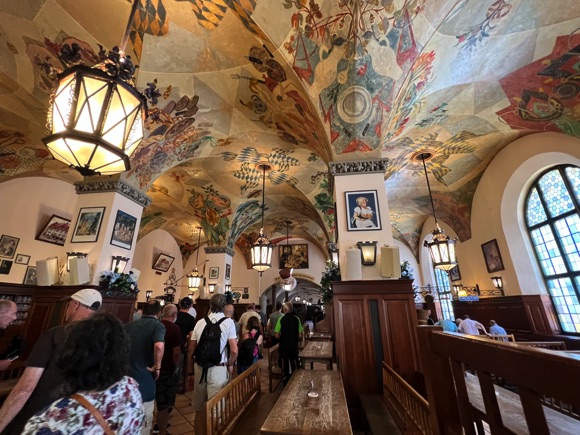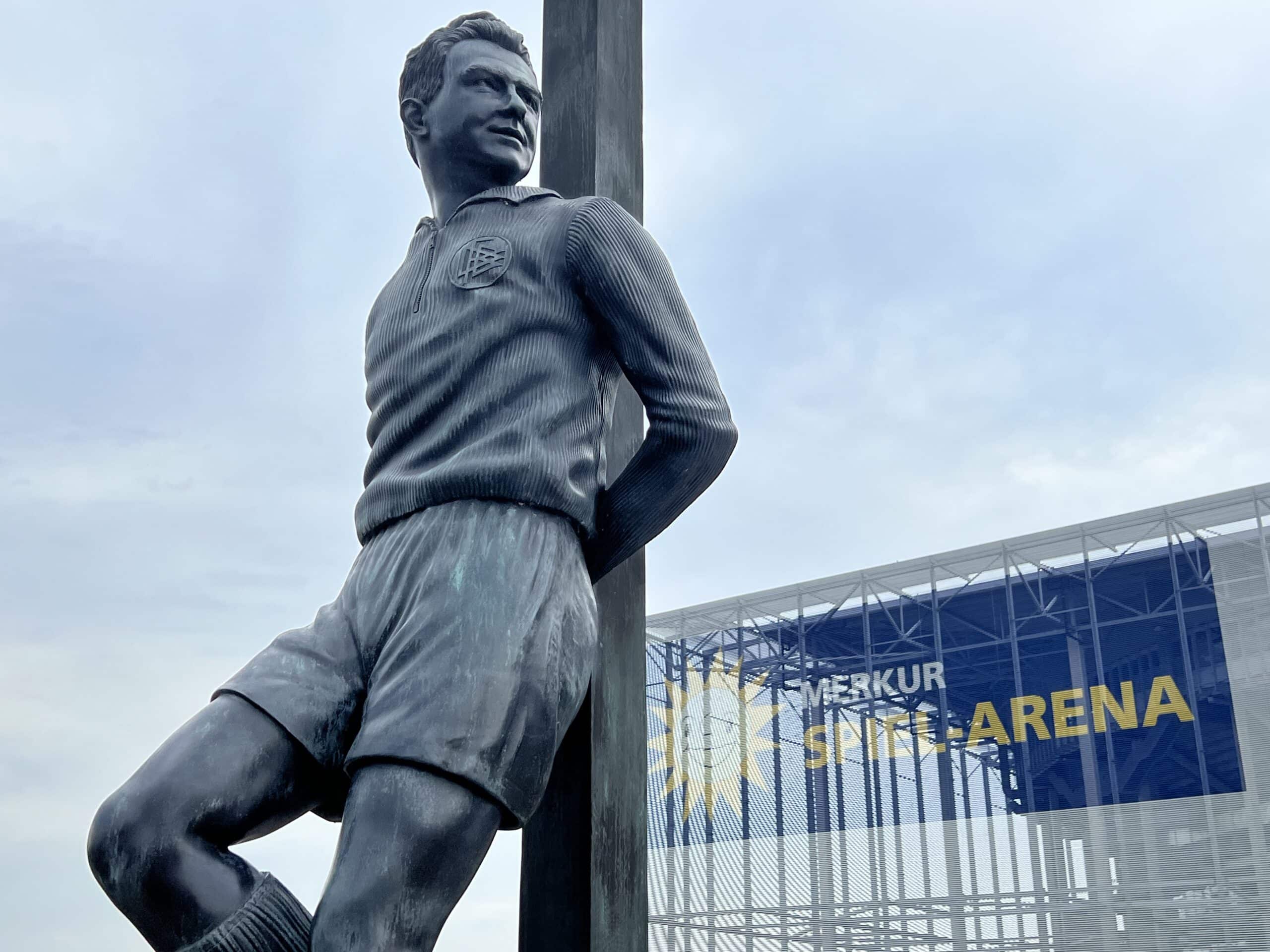
Your guide to Euro 2024
Germany from Berlin to Bavaria – stadiums, pubs and bars
Cities, bars and stadiums – a complete guide to this summer's big tournament in Germany
it may be shamelessly Eurocentric to say so but there’s something irresistible about a major finals being held once more within a single country of undisputed European football pedigree. The last time was France 2016, and a lot – war, pandemic, Platini’s misplaced romanticism to make Euro 2020 a moveable beast – has happened since.
World Cups have gone to the highest bidder, though before Qatar and Russia, this same trope could have been levelled at Euro 2024 host Germany. Whatever the machinations that brought the 2006 World Cup to the home of beer, Beethoven and Beckenbauer – and, sadly, in this of all years, Kaiser Franz isn’t around to ask – there is no doubt that the month-long, 32-team extravaganza of 18 years ago was a huge success.
As captured by filmmaker Sönke Wortmann in his award-winning documentary Deutschland. Ein Sommermärchen (‘Germany. A Summer Fairy Tale’), released on German Unity Day in 2006, during those four weeks a soccer super power rediscovered the sheer joy of football.




Speaking of Italy, this was why, in that epic semi-final against the host nation, Alessandro Del Piero blootered the advertising hoarding to celebrate his 121st-minute clincher. “This is our football!” is how he explained his uncharacteristic actions afterwards, weeks after the Calciopoli scandal (and Australia, lest we forget) nearly sank Italy’s bid to lift a fourth World Cup trophy.
But that summer really belonged to Germany, whose swashbuckling side, fan zones and superb stadia made the tournament so memorable.
More or less the same venues, and same formula, are being brushed down and brushed up for Euro 2024. At Beckenbauer’s insistence, and thanks to his foresight, Leipzig made its debut on the modern international stage back in 2006, since when it has sealed its status as a football force, albeit one powered by an unpopular source of energy.
For these coming four weeks, however, the former Zentralstadion of GDR lore will no longer be a showcase for carbonated drink, just as Munich’s arena will temporarily forget about insurance and Frankfurt will disown banking.




Dropping sponsors’ names from the ten stadiums accommodating Euro 2024 will not disassociate them from tainted commerce in people’s minds, of course, just as Berlin’s Olympiastadion will forever be linked with Hitler’s Games of 1936.
But in ten cities, from Stuttgart to Hamburg, this summer’s spotlight will fall on football and the fans who follow it, able to take advantage of affordable accommodation and a single national train network to hop between matches. And even if Deutsche Bahn blows its big chance to recover at least some of its damaged reputation – the trains haven’t run on time in Germany for years now – urban transport is superb across the country and cyclists are well catered for in this green-conscious land.
It is said that during the first decade of the 21st century, history took a holiday, meaning that many of us who basked in the 2006 World Cup here knew little of climate crises, European conflict or global pandemics. 2024 may not be a summer fairy tale like the last one but there should be enough young talent on display and solid gold legends bowing out to create another memorable movie. After all, everyone’s a filmmaker these days.
TIMINGS & TICKETS
Schedule and admission for Euro 2024




Euro 2024 involves 24 teams in six groups of four. The top two plus four best third-placed sides go through to the final 16. Head-to-head records decide tiebreakers. Extra-time and penalties follow 90 minutes if needed in the knock-out stage, when a sixth substitution can be made in extra-time.
Kick-off times are at 9pm (8pm UK) and 6pm (5pm UK), with a handful of group games at 3pm (2pm UK). Between the opener in Munich on June 14 and the final in Berlin on July 14, 51 games will be played in ten cities, with one stadium in each.
While venues for group games are rotated, as instigated by Platini at France 98, certain countries play two games in one city, making logistics easier. Hungary’s many fans will surely take over Stuttgart, the Czechs Hamburg, the Slovaks Frankfurt, the Austrians Berlin and the Serbs Munich.
To give you some idea of demand, half a million Hungarians applied for tickets for each of their country’s group games, so it’s no surprise that the last general release on May 2 sold out straight away. However, there may still be a few odd seats available on the resale market, and UEFA still need to distribute some tickets if an unexpected team wins through to the knock-out stage – keep your eye on UEFA for details.
FROM STATION TO STADIUM
How to get to Euro 2024 by plane, train and public transport




Were it not for the shocking decline in reliability of national rail company Deutsche Bahn, Germany could claim to be the perfect country to stage an event of this kind. Nine of the ten host cities have an airport, most served by trains directly connecting with centre of town.
Public transport is superb and match-ticket holders will be entitled to a free travel pass valid for 36 hours on the local network of the venue city, from 6am on the day of the game until 6pm the following day. See UEFA for details.
While this isn’t valid for inter-city trains, there’s also a Interrail Pass Euro 2024, giving a 25% discount on certain Interrail Passes for citizens of 32 European countries, excluding Germany but including the UK. This offer is for match-ticket holders for various travel periods, from four days to 15, up to July 21.




Deutsche Bahn have their own offer for match-ticket holders, of single tickets between cities at €29.90 second-class, €39.90 first-class, but In many cases, tickets will be cheaper than this anyway. Certainly, travelling between the four host cities in the Ruhr/Rhineland hub of Cologne, Dortmund, Düsseldorf and Gelsenkirchen, is short and swift on the adjoining VRR/VRS regional networks.
Apart from a couple of tunnels in the north and east, there are no motorway tolls or vignettes in Germany. Do note, though, that older vehicles with poor emissions will not be able to access the so-called Environmental Zone (Umweltzone) as signposted in seven host cities, all those not in the Ruhr industrial zone.
Germany is extremely cycle-friendly and all stadiums should have a parking places for bikes – although Berlin’s Olympiastadion currently only has 100. Deutsche Bahn runs a nationwide Call a Bike scheme for cycle sharing, starting at €1, then €1 for every 15mins’ use, for up to €9/day.
STAY AND PLAY
Where to sleep and what to drink at Euro 2024




Germany specialises in the hybrid hostel/hotel, where you can snag a cheap dorm bed with shared facilities or relax in your own en-suite single. Chains with branches across all major cities include A&O, B&B and Meininger.
Motel One is Germany’s leading low-budget brand while French chain Accor oversees economy/mid-range ibis and Mercure hotels across the country.
Land of the 500-year-old Purity Order on beer ingredients, Germany takes its brewing seriously. Munich, where the law was first adopted in 1487, serves local Hofbräu and Augustiner in historic hostelries, while
Paulaner is the beer Bayern players celebrate with after trophy wins. Löwenbräu traditionally sponsors city rivals, the lion-branded TSV, die Löwen.
Dortmund is also a beer capital, DAB the major brand there, while Cologne is synonymous with the lighter kölsch. Düsseldorf swears by the copper-coloured altbier, Hamburg by little brown bottles of Astra with the heart-and-anchor logo, and Stuttgart, Stuttgarter Hofbräu.
Football in Germany would be unthinkable without sausages, most commonly Bratwurst with pork and beef, with the white-coloured Weißwurst popular in Bavaria.






















